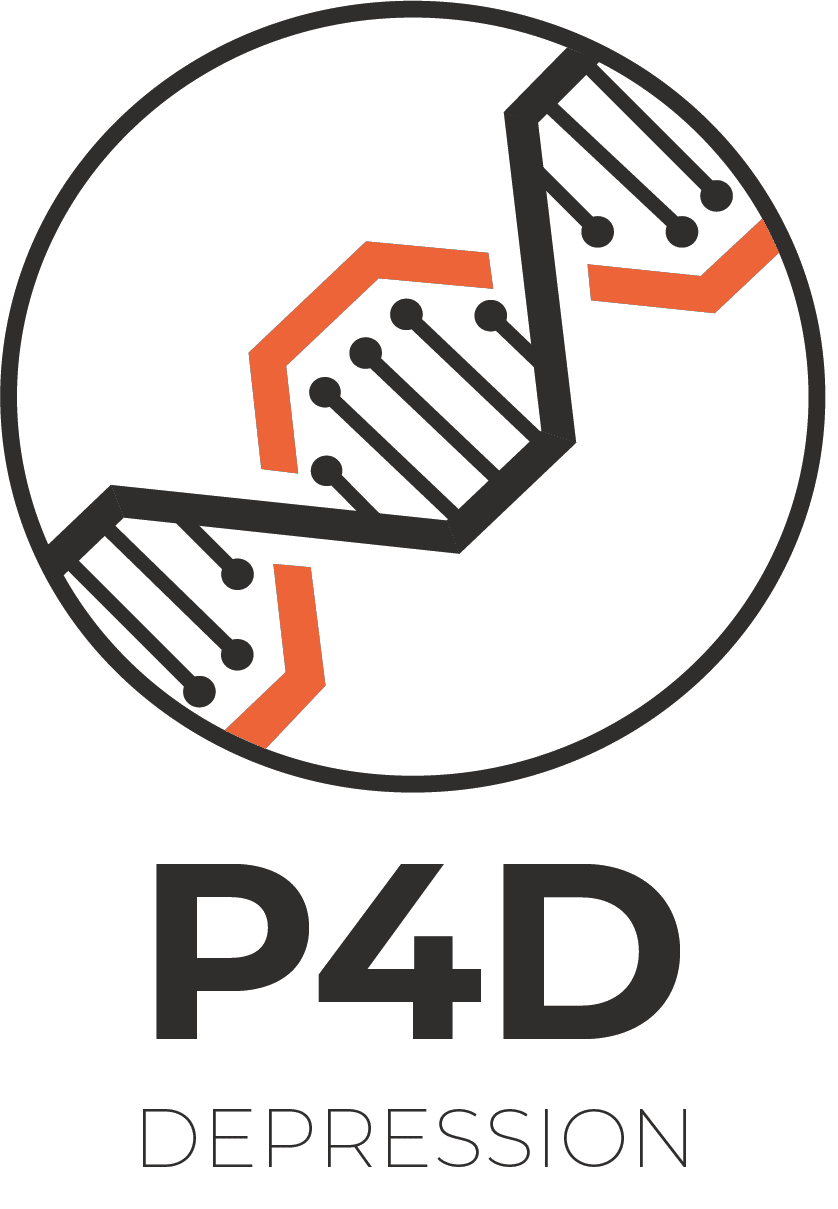P4D
Association studies and data platform for electronic health records and omics data
Depressive disorders are among the most common psychiatric disorders in Europe. Despite the large number of available treatments, only a proportion of people with depression benefit from long-term treatment. Although there is considerable evidence that there are subgroups of patients who respond particularly well to certain treatments, there are no established markers for these subgroups.
The integrated research platform P4D aims to investigate these subgroups in order to improve diagnosis, treatment and prevention of depressive disorders through personalised treatment approaches. To this end, an already identified blood marker of antidepressant response will be clinically tested and validated for use in clinical practice. In addition, a large cohort of patients with depressive disorders will be recruited and subjected to deep phenotyping and genotyping to identify new subtypes of depression from the analysis of the extensive data using machine learning methods. On this basis, publicly available, innovative decision support tools will be developed to enable personalised treatment.
To this end, Leibniz Universität Hannover (LUH) is establishing a system for the secure storage, processing, management and transmission of electronic health records and omics data from the P4D cohort. Novel approaches to raw data compression will be explored to optimise storage, processing and transmission costs. In addition, the LUH is involved in the overall data analysis of the platform to characterise prognostic depression subtypes identified by systems medicine approaches. In particular, new machine learning methods will be developed to generate molecular signatures. The research platform is coordinated by the Hannover Medical School and has a total of ten project partners.




